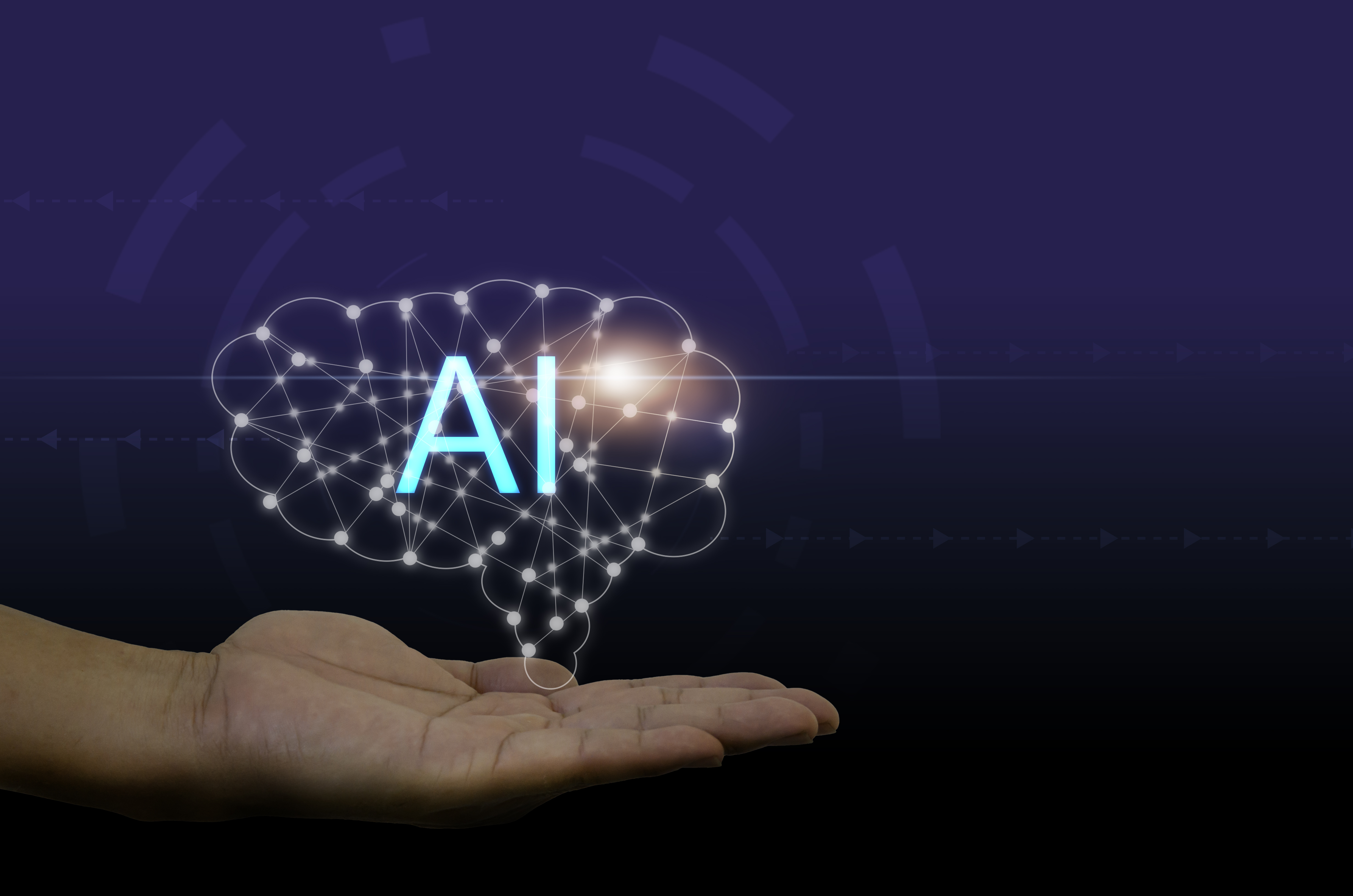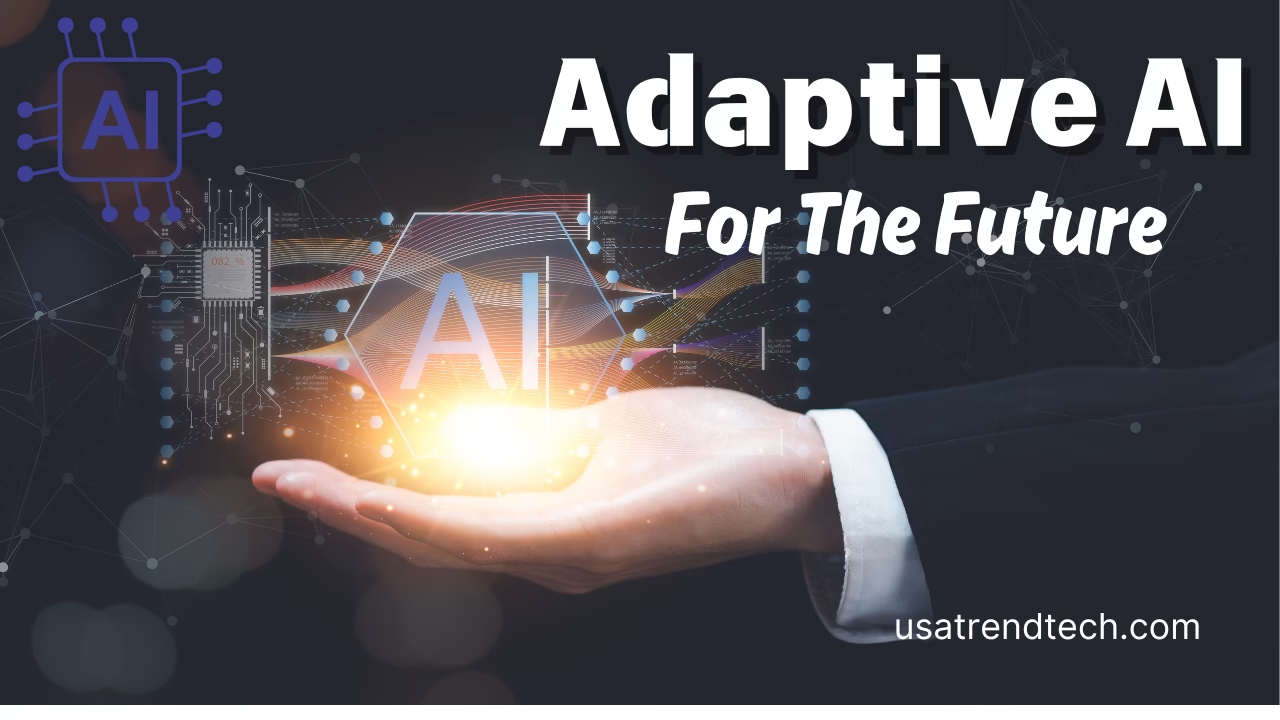Adaptive AI is changing the way technology interacts with the world. It’s not just about solving problems but also learning from them to improve future decisions. Unlike traditional AI, which operates within fixed rules, adaptive AI evolves based on real-time data and feedback. This makes it ideal for dynamic environments where things change quickly. So, the Adaptive AI also known as Dynamic AI.
For example, adaptive AI in games like NCAA 25 analyzes how players behave and adjusts the gameplay to keep things challenging and realistic. Its importance lies in its ability to deliver smarter, more personalized, and flexible solutions. As we move toward a more interconnected world, adaptive AI is becoming a cornerstone of innovation across industries.
What is Adaptive AI? A Comprehensive Overview
Adaptive AI refers to systems that learn and evolve without needing manual updates. These systems adjust their behavior based on new inputs, making them incredibly versatile. They work by continuously analyzing data and fine-tuning their algorithms. This ability to “adapt” sets adaptive AI apart from traditional AI models.
In gaming, adaptive AI has been a game-changer. Take NCAA 25, for example. This sports game incorporates Dynamic AI to create smarter opponents that learn from the player’s strategies. However, If a player constantly uses the same tactics, the AI will recognize this and counteract them, ensuring a more dynamic experience. As well as, adaptive AI is shaping industries like healthcare, retail, and automation.
The Differences Between Traditional and Adaptive AI
The main difference between adaptive AI and traditional AI is flexibility. Traditional AI systems are trained on a fixed dataset and operate within predefined rules. They are effective but limited—they can’t learn new things after deployment.

Adaptive AI, on the other hand, evolves over time. It adjusts to shifting circumstances and gains knowledge from fresh data. For instance, in CFB 25, Dynamic AI can analyze a player’s actions and create new strategies to challenge them. Traditional AI would repeat the same patterns, making the experience predictable.
Adaptive AI’s ability to adapt makes it invaluable for industries requiring real-time decisions. Although, This includes areas like fraud detection, where threats constantly evolve, and the system must stay one step ahead.
The Core Features of Adaptive AI You Should Know
Adaptive AI stands out because of its unique capabilities. Here are its core features:
- Continuous Learning: It never stops learning. It gets smarter and more accurate as it processes more data.
- Context Awareness: It understands the situation it’s in and tailors its actions accordingly.
- Personalization: It delivers customized experiences, such as tailoring gameplay in NCAA 25 to match the player’s skills.
- Real-Time Decision Making: It makes quick decisions based on the latest information.
- Resilience: Dynamic AI performs well even when unexpected changes occur, ensuring reliability.
These features make adaptive AI essential for modern, fast-paced environments.
Applications of Adaptive AI in Various Industries
Adaptive AI has found its way into a variety of industries, each benefiting from its unique capabilities:
- Gaming: Games like NCAA 25 and CFB 25 use adaptive AI to create dynamic, ever-evolving challenges.
- Healthcare: Adaptive AI monitors patient data in real-time, suggesting personalized treatment plans.
- Finance: Fraud detection systems use adaptive AI to spot and respond to new patterns of fraud.
- Retail: It enhances online shopping by personalizing product recommendations based on browsing behavior.
- Manufacturing: Adaptive robots optimize production processes by learning from their environment.
These applications showcase how Dynamic AI is not confined to one area but is transforming multiple sectors.
Why Adaptive AI is the Future of Intelligent Systems
The future demands systems that can adapt to constant change. Traditional systems struggle with this, but adaptive AI thrives in such environments. Although, It evolves alongside the challenges it faces, making it indispensable for businesses and consumers alike.
For example, in NCAA 25, adaptive AI ensures that players experience fresh challenges, keeping them engaged. Similarly, in healthcare, it adjusts to patients’ changing conditions, offering better outcomes. As industries become more reliant on technology, adaptive AI will lead the charge in delivering smarter, more responsive systems.
Benefits for Businesses and Consumers
Adaptive AI offers numerous benefits:
- In Businesses: It improves efficiency, reduces costs, and delivers better customer experiences. For example, adaptive AI in online retail ensures shoppers find exactly what they need, boosting sales.
- For Consumers: It makes technology more intuitive and enjoyable. In gaming, however, systems like CFB 25 use adaptive AI to provide personalized, engaging gameplay.
The combination of these benefits creates a win-win scenario, making adaptive AI an essential tool for the future.
Challenges in Implementing Adaptive AI Solutions
While adaptive AI offers incredible potential, it’s not without challenges:
- High Costs: Developing and deploying adaptive AI systems requires significant investment.
- Data Privacy: Continuous learning raises concerns about how data is collected and used.
- Technical Complexity: Adaptive AI systems are difficult to design and maintain.
Addressing these challenges is key to unlocking the full potential of adaptive AI.
Real-World Examples
Adaptive AI is already making an impact:
- Gaming: In NCAA 25, adaptive AI learns players’ strategies to deliver smarter opponents.
- Healthcare: Adaptive monitoring systems adjust treatment plans based on real-time patient data.
- E-Commerce: Recommendation engines refine their suggestions with every interaction.
These examples highlight how adaptive AI is changing the way systems interact with users.
How Adaptive AI Supports Continuous Learning and Evolution
Continuous learning is what sets Dynamic AI apart. Unlike traditional systems that remain static, adaptive AI grows smarter over time. For example, in NCAA 25, it learns a player’s style and adjusts tactics to create fresh challenges.
This ability to evolve ensures that systems remain effective even as conditions change. It’s a vital feature for any technology meant to last in a rapidly evolving world.
Future of Automation
Automation is advancing rapidly, and adaptive AI is at the forefront. Traditional automation systems follow pre-set rules, but adaptive AI can think on its feet. It’s being used in manufacturing to optimize production lines and in logistics to adjust delivery routes in real time.
In the future, adaptive AI will enable smarter, more efficient automation systems that respond to changing demands without manual intervention.
What Businesses Need to Know About Investing in Adaptive AI
For businesses considering adaptive AI, here are some key points:
- ROI Potential: Adaptive AI improves efficiency and customer satisfaction, making it a worthwhile investment.
- Scalability: It grows alongside your business, handling increasing demands effortlessly.
- Expertise Required: Implementing adaptive AI requires skilled professionals and resources.
By understanding these factors, businesses can make informed decisions and leverage adaptive AI effectively.
The Future of Adaptive AI: Trends to Watch in 2025
Looking ahead to 2025, adaptive AI is poised to grow even further. Key trends include:
- Enhanced Personalization: Systems will offer even more tailored experiences, like those in CFB 25.
- Increased Adoption: More industries will embrace adaptive AI as it becomes more accessible.
- Integration with Emerging Tech: Combining adaptive AI with quantum computing and blockchain will unlock new possibilities.
These trends make it clear that adaptive AI is not just a passing trend but a foundational technology for the future.
Frequently Asked Questions
What is Adaptive AI?
Adaptive AI is a type of artificial intelligence that evolves and adapts over time by learning from new data and experiences. However, It differs from traditional AI in that it can adjust its behavior dynamically without requiring manual updates.
How is Adaptive AI used in NCAA 25 and CFB 25?
In games like NCAA 25 and CFB 25, adaptive AI creates a more challenging and realistic gameplay experience by analyzing players’ actions and adjusting the strategies of in-game opponents accordingly.
How does Adaptive AI differ from traditional AI?
Traditional AI operates within fixed rules and cannot learn after deployment. Adaptive AI, on the other hand, continuously learns from real-time data, enabling it to respond to new situations and improve over time.
What trends are shaping Adaptive AI in 2025?
Key trends include enhanced personalization, broader adoption across industries, integration with emerging technologies like quantum computing, and increased focus on ethical AI practices.

